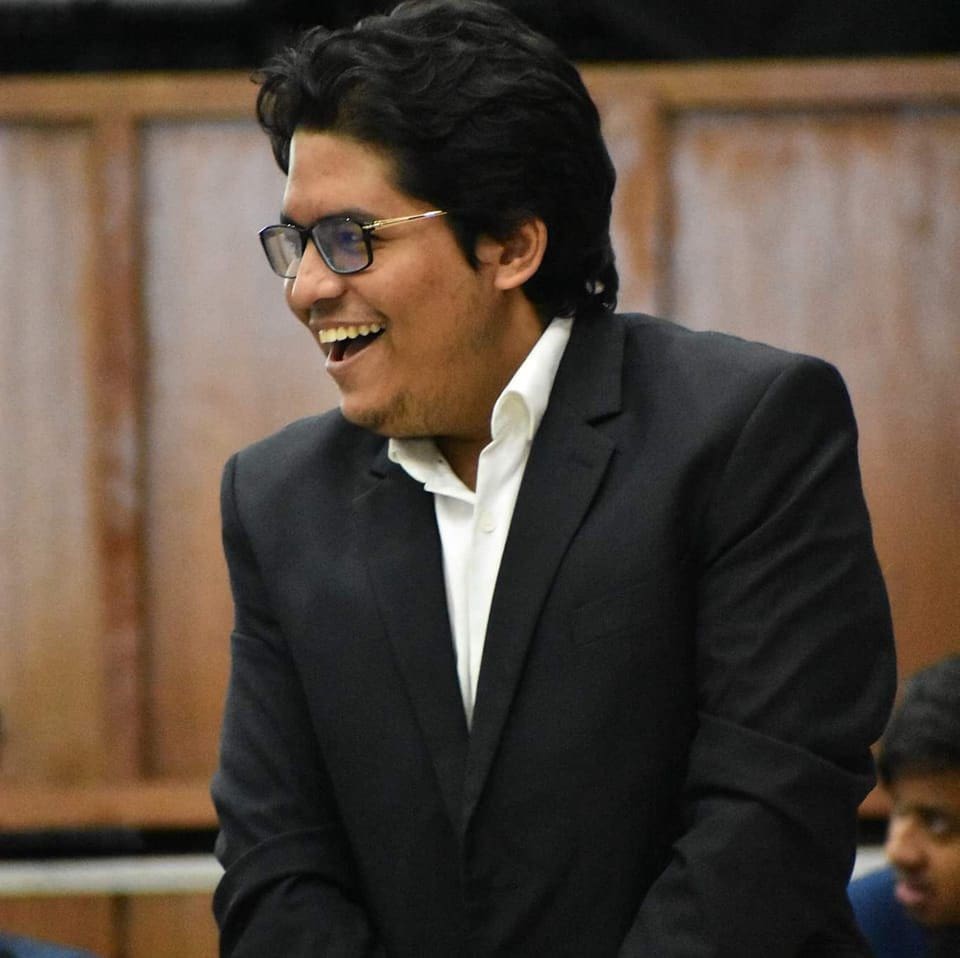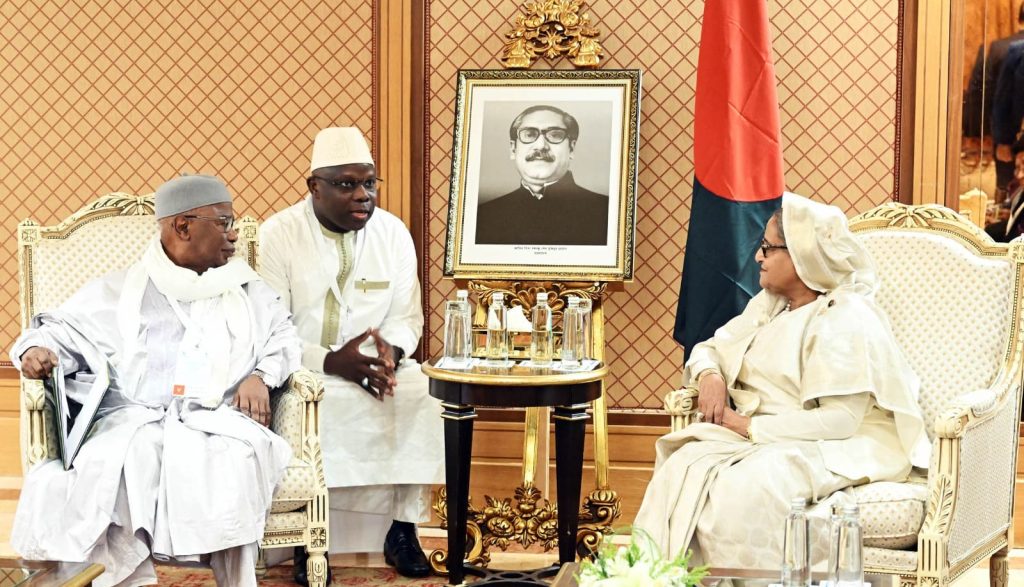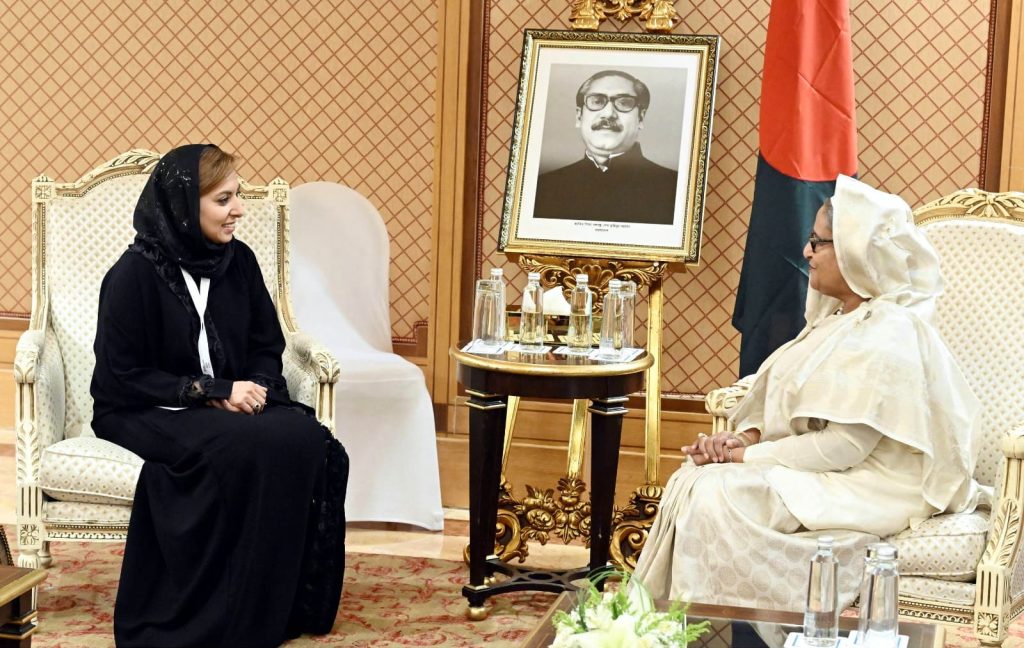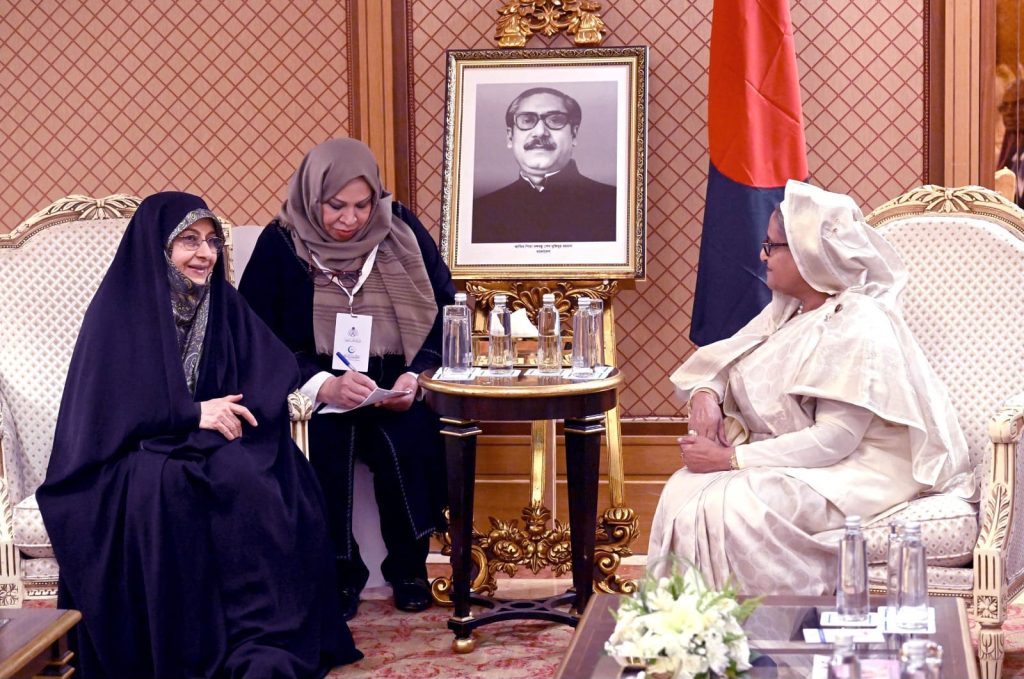Bangladesh’s Prime Minister, Sheikh Hasina has recently concluded her three-day visit to Saudi Arabia where she participated in the International Conference on “Women in Islam: Status and Empowerment” organized by the General Secretariat of the Organization of Islamic Cooperation (OIC).
The three-day conference in Jeddah was strategically important and unique for three reasons. Firstly, the conference took place while the Israel-Palestine conflict reverberates across the Muslim populated nations. Such gathering of top leaders of the Muslim world showcases a strong solidarity and commitment among OIC member states to achieve greater goals by facilitating both bilateral and multilateral cooperation.
Secondly, the conference aimed to navigate one of the most sensitive and pressing issues in the Muslim ummah- women empowerment. As women were and still are subjected to patriarchy, violence and oppression in Muslim majority countries due to prejudice and archaic social norms, the need for putting highest political priority to gender equity and facilitating mutual cooperation among OIC members is instrumental. The conference honored the contributions of Muslim women throughout history and attempted to formulate a detailed plan for necessary legal and political reforms to promote gender equity across the OIC member nations.
Thirdly, the conference, though focused on gender issues, provided a platform to discuss the ongoing crisis at Gaza and create a strong diplomatic pressure from the Muslim majority nations on Israel and the West.
The Palestinian Cause
Bangladesh also utilized the conference to reaffirm the country’s unwavering commitment to the Palestinian cause. The country favors the two-state solution prescribed by the United Nations. Since Bangladesh’s independence, Bangladesh has maintained a strong bilateral relationship with Palestine. Even Bangladesh maintains no diplomatic and economic ties with Israel to display the country’s unequivocal support to the repressed people of Palestine. Bangladesh offers scholarships to young Palestinian students to study in the country. Currently, there are around 100 Palestinian students in Bangladesh – majority of which are studying MBBS (Bachelor of Medicine, Bachelor of Surgery) and BDS (Bachelor of Dental Surgery).
From October 7, Israel has conducted a bloody military campaign in Gaza in retaliation for the Hamas attack on Israel. Since then Bangladesh has sent medical aids to Gaza, observed national mourning day on October 21 and arranged mass prayers in mosques for the people of Gaza.
In the inaugural ceremony of the conference on November 6, Prime Minister Sheikh Hasina delivered her speech as a guest of honor. She appealed to leaders worldwide to mediate an immediate ceasefire in Gaza to prevent illegal occupation. She said,
“I call upon all parties to ensure humanitarian access and an immediate ceasefire in Gaza. I urge world leaders to end this dreadful war, collective punishment, and illegal occupation.”
Reiterating her support to the Palestinian cause, she continued, “We must remain united for an independent and sovereign state of Palestine. I will continue to do my part on behalf of our Palestinian brothers and sisters.”
Highlighting the war crimes conducted by Israel through killing innocent civilians, including women and children, Sheikh Hasina stated, “We condemn the Israeli atrocities committed against innocent women and children in Gaza. It brings the memory of the 200,000 women and girls who suffered inhumane persecution in the 1971 Liberation War of Bangladesh. It evokes the scene of thousands of tortured Rohingya women and children from Myanmar who took refuge at our border in August 2017.”
This firm support of Bangladesh to Palestine is a part of broader foreign policy of the country. The Awami League-led government under the leadership of Sheikh Hasina has adopted a humanitarian foreign policy to advocate for human rights and support downtrodden populace across the globe. Under her leadership, Bangladesh has taken a proactive role in promoting global peace, security and cooperation. By providing refuge to nearly a million of Rohingyas in Bangladesh, the country has demonstrated its resolute pledge to stand with subjugated people globally. Sheikh Hasina has positioned Bangladesh as a humanitarian nation on a global diplomatic landscape – a country which fights against any form of injustice.
Women’s Empowerment
A home of around 150 million Muslims, Bangladesh became a member of OIC in 1974. On September 14, 2021, Bangladesh signed the Statute of the Women Development Organization (WDO), an OIC specialized entity to reaffirm the country’s continued commitment towards women empowerment.
In her time in office, Sheikh Hasina has given women empowerment the highest political priority. Since 2009, she has undertaken numerous reforms and initiatives to empower women in all fronts – from education to labor participation and from health to agriculture. Her policy measures withstood backlash from extremists and zealots who do not want women to step outside of their homes. Despite being a Muslim majority country with a deeply rooted patriarchy, the country has managed to rank first among the South Asian countries for the 9th consecutive time and 59th in the world according to the Global Gender Gap Report 2023 by the World Economic Forum (WEF).
Sheikh Hasina’s relentless fight against radicals in achieving gender equity was recognized by the Fortune Magazine, when they placed Sheikh Hasina at the 10th position in their list of world’s greatest leaders in 2016 and stated: “As the only female leader among the Organization of Islamic Cooperation member states, Hasina has deftly navigated the competing demands of Islamic tradition and women’s rights. She has committed Bangladesh, the nation with the world’s fourth-largest Muslim population, to securing legal protections for women and helping them attain more education, financial freedom, and political power“. In 2018, Hasina received the Global Women’s Leadership Award for her leadership in women’s education and entrepreneurship in Bangladesh.
Gender in Foreign Policy
The Bangladesh government led by Hasina has placed gender-equality in its foreign policy. The country proactively advocates for women’s rights and empowerment in global platforms like the UN Women. In the OIC conference, Hasina noted broadly four things to address women empowerment:
First, she invited everyone across the globe to say ‘no’ to all crimes, violence, subjugation, and growing Islamophobia targeted against women and girls;
Second, she highlighted the necessity to give adequate attention to meet SDGs in efforts to achieve gender equality;
Third, Hasina suggested an embracing and enabling culture in Muslim societies to allow Muslim women practice their bodily autonomy and maximize their choice in presenting themselves in public in ways women deem fit.;
And finally, as Bangladesh has made numerous strides in achieving gender equality, Sheikh Hasina and her government will be willing to share the experiences and lessons to other Muslim nations to uplift women in their own countries.
Other Engagements
On the sidelines of the conference, Hasina exchanged views with top leaders and officials of OIC and member states. She exchanged views with the Foreign Minister of the Kingdom of Saudi Arabia, Prince Faisal bin Farhan. On November 6, at Hilton Hotels in Jeddah, Dr. Ensieh Khazali, Vice President for Women and Family Affairs of Iran held a meeting with Hasina. Additionally, Hasina had encounters with Hussein Brahim Taha, Secretary General of OIC, and Dr. Afnan Al-Shuaiby, Executive Director of OIC’s Women Development Organization (WDO).
Besides, Sheikh Hasina inaugurated an exhibition titled ‘Women in Islam’ arranged by Princess Noura University, and participated in a dinner hosted in her honour during her visit..
Other Engagements
The conference and activities therein conveyed an unequivocal diplomatic message that the OIC member countries recognize Sheikh Hasina’s leadership as one of the leading heads of the states in the world, especially in Muslim majority countries. This unwavering support means that the OIC and its member states believe in Sheikh Hasina’s rule as transformational not just in Bangladesh but also across the globe – a kind of leadership that can be emulated in furthering women’s interest in conservative Muslim societies as well as in voicing and supporting repressed voices such as Rohingyas, Palestinians etc.
About the Author

Shah Adaan Uzzaman is the Blog Administrator at The Confluence. A former Bangladesh Television Debate Champion and winner of several policy & debate competitions, he is currently a student of IBA, University of Dhaka.



